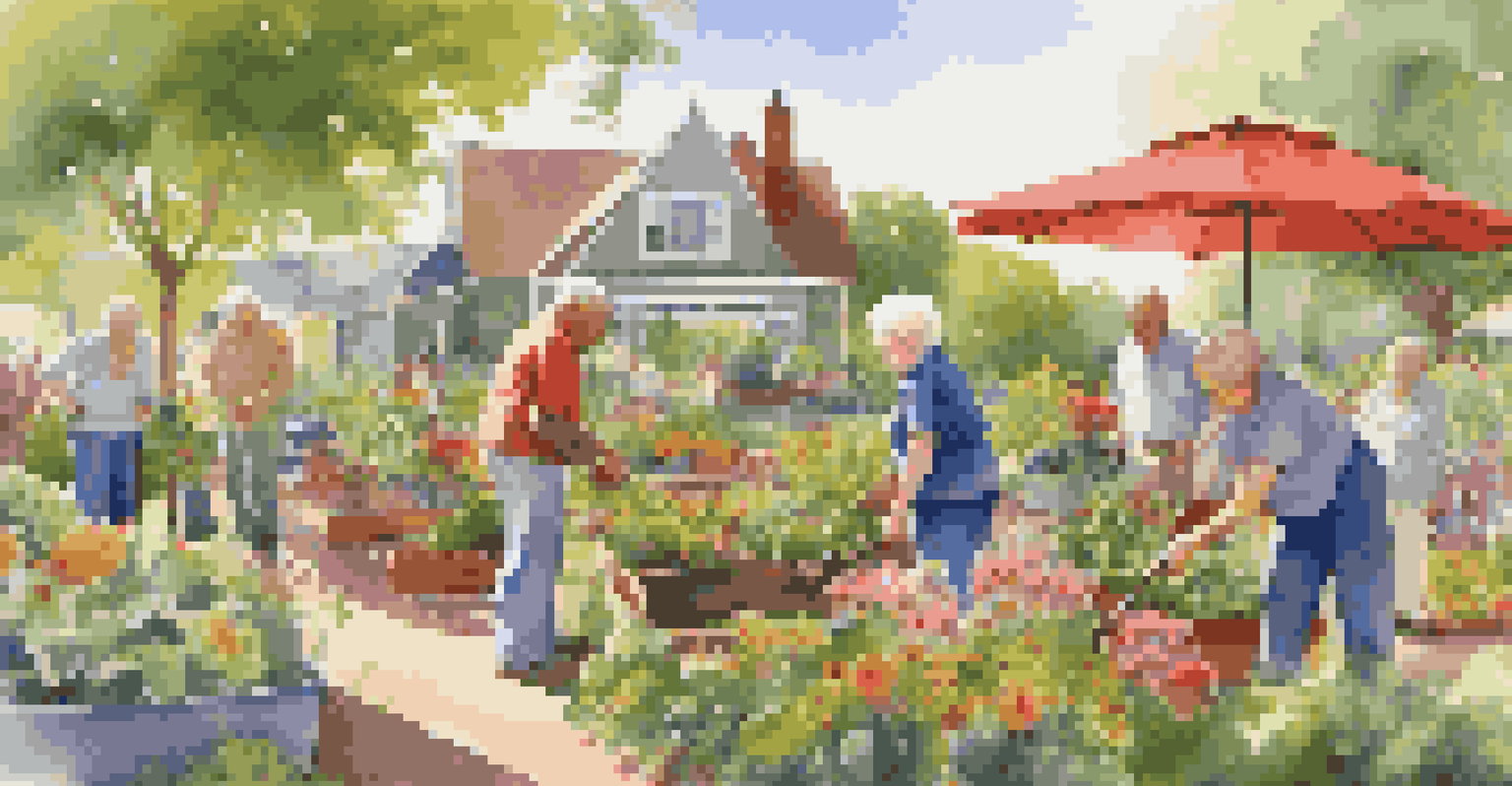Understanding the Impact of Aging on Relationship Dynamics

The Changing Landscape of Relationships as We Age
As we move through different stages of life, our relationships often undergo significant changes. Aging brings about shifts in priorities, energy levels, and social circles, which can directly impact how we connect with others. For instance, younger years might be filled with friendships formed through shared activities, while older age may focus more on deeper emotional connections.
The greatest gift of life is friendship, and I have received it.
Moreover, factors like retirement or children leaving home can alter relationship dynamics, prompting individuals to seek new forms of companionship. This reflection on what truly matters can lead to stronger bonds with those who share similar experiences or values. It’s a reminder that relationships can evolve and deepen over time, even if they look different than before.
Ultimately, understanding these shifts allows us to embrace the changes and foster more meaningful connections. Acknowledging that the landscape of relationships is always changing can help us adapt and appreciate the unique companionships that come with each stage of life.
How Aging Affects Communication Styles
Communication is the backbone of any relationship, and as we age, our styles may shift. Many older adults tend to prefer face-to-face interactions, valuing the nuances of body language and vocal tone that might be lost in digital communication. This shift can lead to misunderstandings if both parties are not on the same page regarding their preferred modes of communication.

Additionally, with age comes a wealth of life experiences, which can influence how one expresses thoughts and feelings. Older adults may become more direct, as they often have a clearer sense of what they want to convey. This newfound openness can enhance intimacy in relationships, but it may also catch younger partners off guard if they aren't used to such straightforwardness.
Relationships Evolve with Age
As we age, our relationships transform, emphasizing deeper emotional connections and shared experiences.
Ultimately, recognizing and adapting to these evolving communication styles is crucial. By being open and understanding, we can navigate these transitions and ensure our relationships remain strong and fulfilling, regardless of age.
The Role of Shared Experiences in Aging Relationships
Shared experiences can significantly shape the dynamics of relationships as we age. Whether it's raising children, navigating career changes, or facing health challenges together, these moments create a unique bond between individuals. As we age, reflecting on these shared milestones often brings couples or friends closer, enhancing their connection.
We don’t stop playing because we grow old; we grow old because we stop playing.
Moreover, engaging in new activities can invigorate relationships, providing fresh memories and experiences. For instance, joining a class or traveling to new places can rekindle a sense of adventure, reminding us of the joy found in companionship. This blend of old and new experiences fosters a rich tapestry of shared history that can deepen bonds.
Ultimately, valuing shared experiences can lead to more resilient relationships. By actively creating new memories while cherishing the past, we can keep our connections vibrant and meaningful as we age.
Navigating Health Changes Together
Health changes are often an inevitable part of aging, and they can significantly impact relationships. When one partner faces health challenges, the dynamic can shift from equals to a caregiver and a care receiver. This transition can introduce new stressors, requiring both parties to adapt to altered roles and responsibilities.
However, navigating health changes together can also strengthen relationships. Open discussions about health concerns foster understanding and compassion, allowing partners to support one another better. Sharing these experiences can create a deeper emotional bond, as both individuals learn to cope with the challenges together.
Communication Styles Shift
Older adults often prefer face-to-face communication, which can lead to more direct and meaningful exchanges.
In essence, the way couples manage health changes can either hinder or enhance their relationship. By maintaining open communication and mutual support, partners can emerge from these challenges with a stronger, more resilient bond.
The Impact of Social Networks on Aging Relationships
As individuals age, their social networks may shift, affecting their relationships. Friendships can dwindle due to various factors, such as relocation, health issues, or even the loss of loved ones. This reduction in social interactions can lead to feelings of loneliness, making it crucial to actively seek out new connections.
Conversely, a robust social network can provide emotional support and enrich relationships. Engaging in community activities, joining clubs, or even connecting with neighbors can foster new friendships and strengthen existing ones. These social ties can serve as a buffer against the challenges of aging, providing companionship and shared experiences.
Ultimately, recognizing the importance of social networks is vital for maintaining healthy relationships as we age. By nurturing these connections, we can enhance our emotional well-being and create a supportive environment for ourselves and our loved ones.
Emotional Intimacy and Vulnerability in Aging
Emotional intimacy often deepens with age, as individuals become more comfortable with vulnerability. As we gather life experiences, we learn the value of sharing our true selves with others. This openness can lead to stronger emotional bonds, allowing relationships to flourish in ways they may not have in younger years.
However, vulnerability can also be daunting, especially when facing the realities of aging. The fear of rejection or judgment may hold some individuals back from fully expressing their thoughts and feelings. Overcoming these fears requires trust and a willingness to be open, but the rewards can be profoundly enriching.
Independence vs. Connection
Finding a balance between maintaining independence and nurturing relationships is essential for satisfaction as we age.
In essence, embracing vulnerability can lead to greater emotional intimacy in relationships. By creating safe spaces for open dialogue and sharing, we cultivate deeper connections that can significantly enhance our quality of life as we age.
Maintaining Independence While Nurturing Relationships
Maintaining independence is a vital aspect of aging, yet it can sometimes clash with relationship dynamics. Many individuals desire autonomy, wishing to make their own choices and live life on their terms. However, this independence can create tension, especially in close relationships where interdependence is often valued.
Finding a balance between independence and connection is key. Encouraging open discussions about personal needs and boundaries can help both parties understand each other's perspectives. For example, a partner may appreciate alone time to pursue hobbies while also enjoying shared experiences, leading to a healthier dynamic.

Ultimately, respecting each other's independence while nurturing relationships can lead to greater satisfaction. By embracing both aspects, we can create fulfilling connections that honor our individuality and strengthen our bonds.